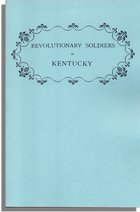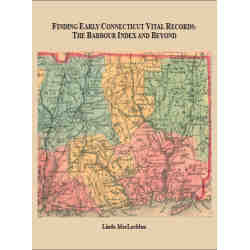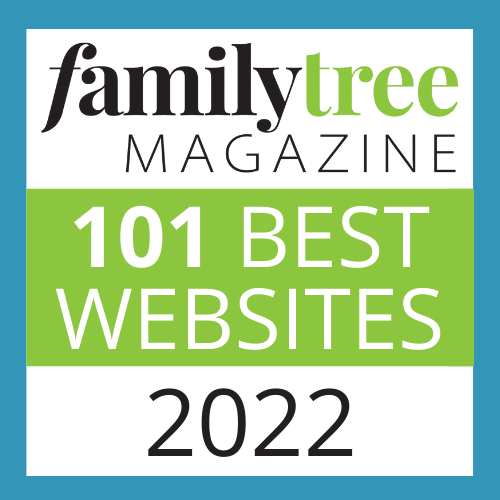
I have often viewed royal lineage research with more than a little skepticism. As a newly-elected genealogical society president, I can remember inviting visitors to a society monthly meeting to introduce themselves and tell a bit about the focus of their research. A man stood up, identified himself, and told us that he had researched his line back to Julius Caesar. This event was followed not long after by a woman in the society’s creative writing class who informed the group that she had done all her research back to David in the Bible – by way of Stonewall Jackson. I, perhaps wisely, did not ask to see her documentation. Despite my skepticism, however, I am aware that members of royal families, and to an even greater extent members of noble families, have documented offspring, and that for many of these offspring, lineages can be tracked through successive generations to modern-day individuals.
[av_image src=’https://genealogical.com/wp-content/uploads/2018/10/ancestry-dna-coupon-codes-300×199-300×199.jpg’ attachment=’5571′ attachment_size=’medium’ align=’right’ styling=” hover=” link=” target=” caption=” font_size=” appearance=” overlay_opacity=’0.4′ overlay_color=’#000000′ overlay_text_color=’#ffffff’ animation=’no-animation’ admin_preview_bg=” av_uid=’av-bw58u’][/av_image]
Given my interest in Barclay genealogy, I always search for that surname in royal/noble lineage publications. Almost invariably the Barclay included is John Barclay who was born in Scotland in 1659 and died in Perth Amboy, East New Jersey, ca. 1731. He was the brother of Robert Barclay of Urie, the “Quaker Apologist,” whose line extends back to Robert the Bruce. My research in the Barclay-Allardice Papers” some years ago in Edinburgh documented John’s grandchildren children in New Jersey as John (b.1725), David (b.1727), Anne (b.1729), John (b.1731), Charles (b.1733), Peter (b. 1735), Robert (b.1737), Lydia (b.1739), Katherine (b.1742) and Richard (b.1745). While I have not done further research myself, thus far the Barclay Genealogical database does not include any descendants of these children. Despite a lack of documentation, many correspondents to the database are convinced that they descend from either Robert or John Barclay of Urie.
For many individuals, finding familial connection to an important person, preferably with noble or royal roots, is a much-desired research goal. Several motives prompt this desire, including the desire to qualify for any one of a variety of hereditary societies. Royal and noble lineage research, however, requires skill and perseverance; it is not easy.
Royal and noble type research is no different than any other. You must start with yourself and move backward through time, documenting the details of each generation. One writer on the topic believes that for the ordinary person, it might be necessary to research twenty-five to thirty generations or more before reaching a royal line. There can be no guarantee that you will link to royal lineage at any time in your research (unless you are one of the few who already know that you can link to a royal lineage within the past three to four generations). The ability to link to a noble line is much easier, and perhaps over half of the population of the United States is able to do so. If you can trace your lineage back to the colonial era in New England, the Mid-Atlantic, or the South, you may well be able to document your descent from the younger son of a noble line in England or Scotland. This younger son generally did not inherit property and thus had to support himself in some other fashion. In colonial Virginia, these younger sons often came to serve as tutors to the children of plantation owners, or as ministers or businessmen. Do not forget to research the women in your pedigree as they may be the individuals through whom you will discover your royal or noble connection.
Given the need to document individuals in such a large number of generations, your work may require research in medieval records. To use these records effectively requires advanced skills including the ability to read and translate the Latin or French in which these records were written. Some books that can help if you are doing British Isles research include Grant G. Simpson’s Scottish Handwriting 1150-1650: An Introduction to the Reading of Documents (Aberdeen University Press, 1986), Charles Trice Martin’s The Record Interpreter (Genealogical Publishing Co., repr. 2010), and Denis Stuart’s Latin for Local and Family Historians (Phillimore, 2000). In addition, your research will require analysis of the records of the time, records that are quite different from those you normally encounter in your research. You will want to learn about these records through such books as Amanda Bevan’s Tracing Your Ancestors in the National Archives (The National Archives, 2006) and Mark D. Herber’s Ancestral Trails: The Complete Guide to British Genealogy and Family History (2nd ed., Genealogical Publishing Co., 2007).
You also need to be familiar with the surnames of individuals whose royal or ancestral ancestry has been documented. As always, just finding a lineage in a printed (or online) resource does not mean that it is accurate. Use your regular research skills to analyze the documentation provided before accepting the information as presented. You will want to consult titles such as the following:
- The Royal Descents of 900 Immigrants to the American Colonies or the United States by Gary Boyd Roberts (Genealogical Publishing Co., 2006)
- Royalty for Commoners: The Complete Known Lineage of John of Gaunt, son of Edward III, King of England, and Queen Philippa by Roderick W. Stuart (4th ed., Genealogical Publishing Co., 2006)
Just as there are many books published on royal ancestry, the Internet also provides access to a wide-range of information. A search on “Cyndi’s List” yielded over 200 links. While some sites cover the lineage of a specific family or the royalty of a specific country, others, take a completely different tact. The Prosopographical Centre at Linacre College, Oxford, for instance, promotes the study of medieval prosopography, namely the “independent science of social history embracing genealogy, onomastics and demography” in which analysis focuses on a “person, his environment and his social status, that is, a person within the context of family and other social groups, the place or places in which he was active and the function he performed within his society.”
Wikipedia’s “List of Monarchs by Nickname” introduces us to Sweden’s Gustav V, “the Tennis King;” Saxony’s John George I, “the Beer Jug;” Bulgaria’s Ivailo “the Cabbage;” and Pamplona’s Garcia IV, “the Trembling.” Other links refer to individuals who maintain royal and noble databases and listservs that may prove useful in your research. You may want to look in particular at “Royal Genealogy and Heraldry” and “Direct Access to Royal and Nobility Genealogy Databases.”
Finally, you may want to consult Wikipedia’s List of Hereditary Societies. it will provide you with information about such organizations as the National Society of Americans of Royal Descent, the Order of Americans of Armorial Ancestry, the Baronial Order of the Magna Carta, the Order of the Crown of Charlemagne in the USA, the Hereditary Order of the Descendants of the Kings of Scotland, the Baronial Order of the Magna Carta, and many more.





Carolyn, it has been many years since we last corresponded regarding Robert Barkley d. 1788 Rowan Co. NC. (I descend from him via the Todds). I was wondering if anyone had made any progress in identifying his father/parents? In our last email back in 2001, you had said that it might be possible that Robert of Rowan’s father was a Robert Barclay, who was transported to E. New Jersey on 17 Aug 1685 and that he might be the husband of Margaret Kerr Barclay.
When we last corresponded, I had surmised that Robert of Rowan came out of Lancaster PA, but based on more information about the Jersey settlement group and related information from NJ, I dropped that theory as being incorrect.
In any event, I was wondering if I had missed any progress regarding Robert of Rowan’s parentage. Would appreciate it if you could update me. Thanks again for your help.
It has been many years since I corresponded with Carolyn Barkley regarding Robert Barkley d. 1788 Rowan Co. NC. (I descend from him via the Todds). I was wondering if anyone had made any progress in identifying his father/parents? In my last email back in 2001, she had said that it might be possible that Robert of Rowan’s father was a Robert Barclay, who was transported to E. New Jersey on 17 Aug 1685 and that he might be the husband of Margaret Kerr Barclay.
I had surmised that Robert of Rowan came out of Lancaster PA, but based on more information about the Jersey settlement group and related information from NJ, I dropped that theory as being incorrect.
In any event, I was wondering if I had missed any progress regarding Robert of Rowan’s parentage. Would appreciate it if someone could update me. Thanks again for your help.
Dear Larry,
Sorry to tell you that Carolyn Barkley died about ten years ago. We still run some of her articles because most of the content is still very helpful.
Joe Garonzik
Marketing Director
Genealogical.com